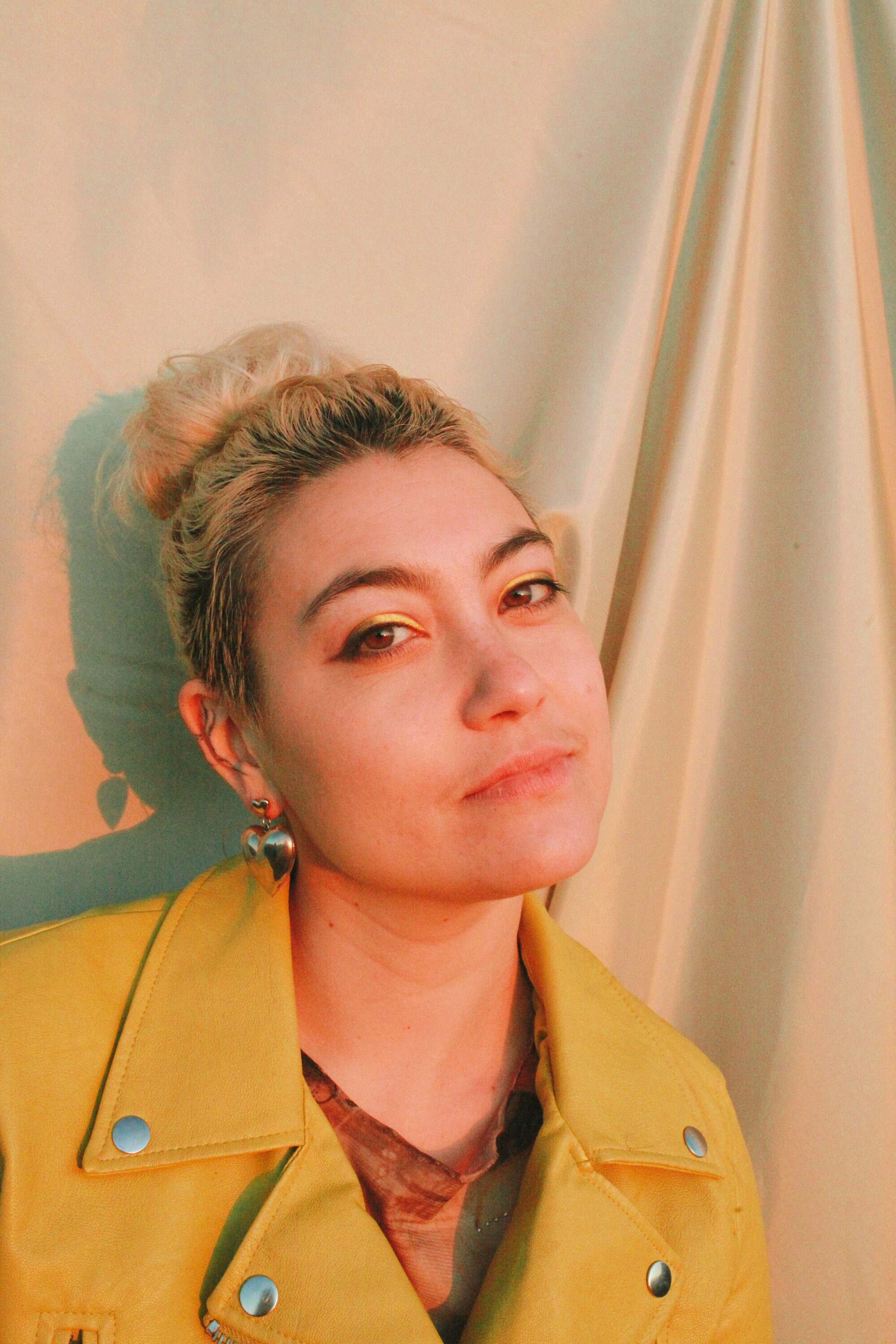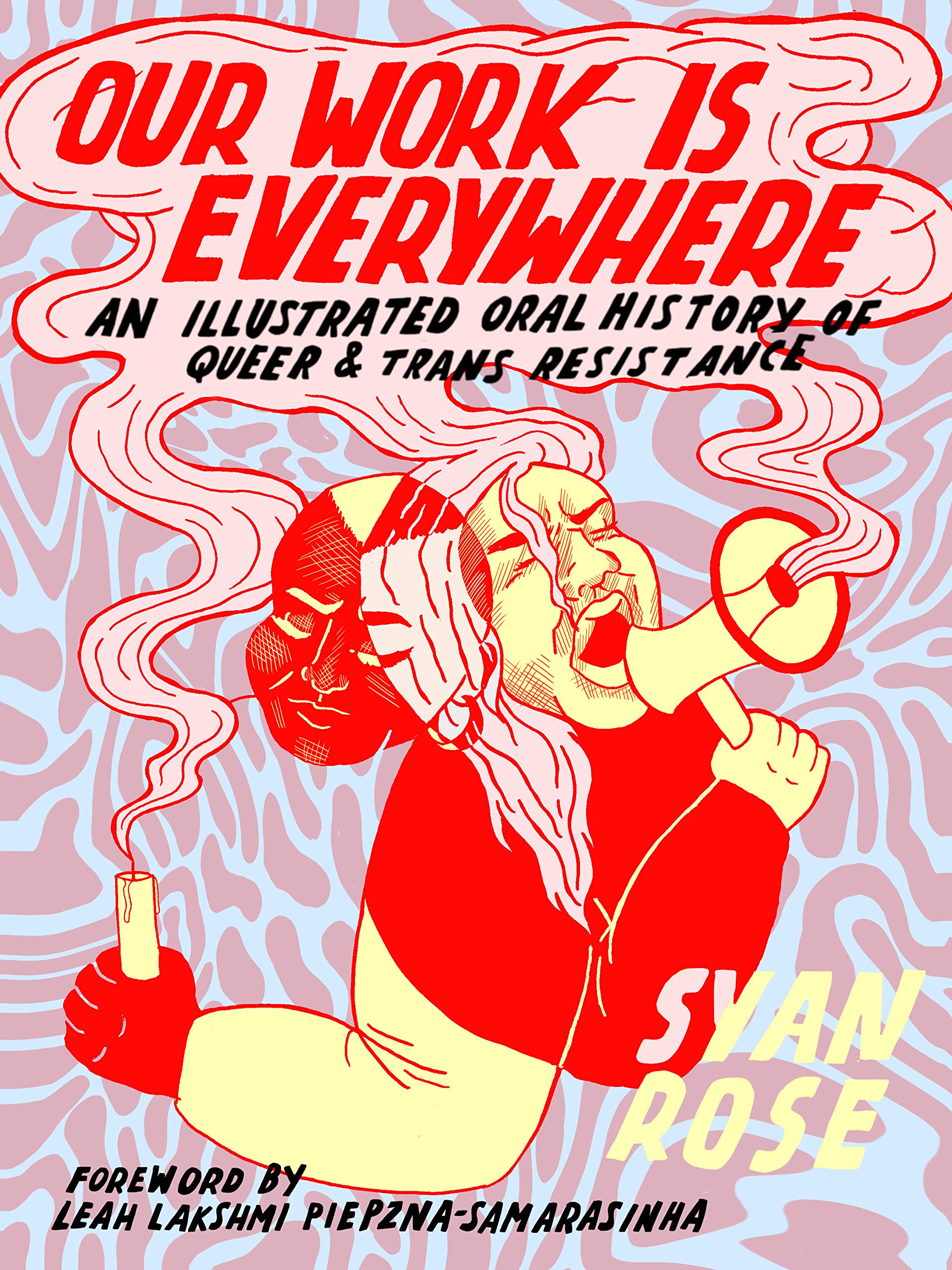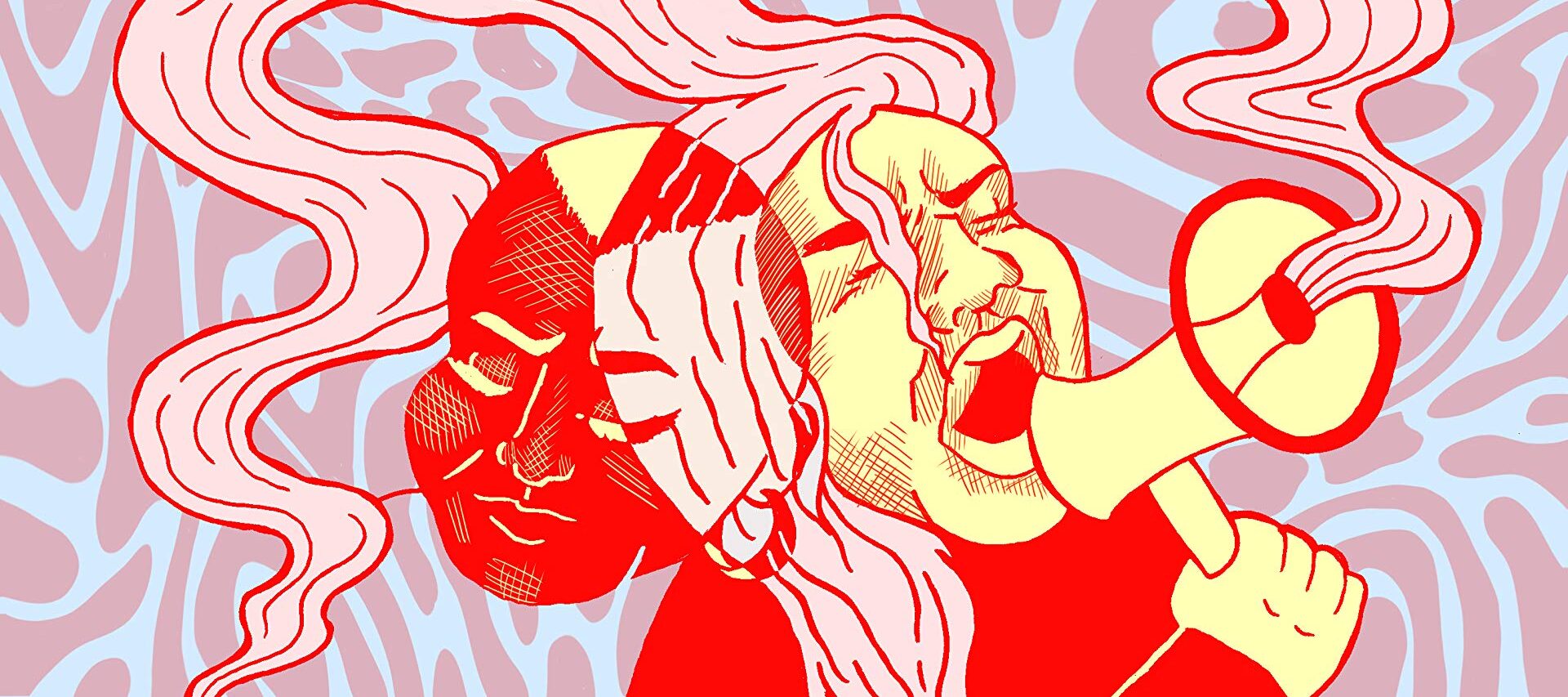Sarah Rosenblatt, aka Syan Rose, is a Queer comic artist and illustrator. Her work, which draws on both representational and Surrealist imagery, addresses complicated themes including ancestral history, Queer embodiment, and social movements. We spoke with Rose about her artistic practice and book Our Work Is Everywhere: An Illustrated Oral History of Queer and Trans Resistance (2021), available in NMWA’s Museum Shop.

1. How did you come to comic art and illustration?
I studied drawing, printmaking, and bookmaking in school, as well as sociology and gender. Comics felt like a beautiful, accessible way to blend my interest in politics and culture. After school, I moved to Seattle and took whatever gigs came my way—illustrating flyers for shows, tabling comics fests, creating handmade zines. The DIY scene felt very welcoming and encouraging of new artists; no one asked or cared if you had a degree or gallery representation. By putting on small art shows and collaborations with people in my community, I was able to build my confidence, skill set, and a large portfolio of work, which I later used to apply for editorial work and residencies. I truly recommend that any new artist looking for a place to start should make zines.
2. Your work highlights the diversity within the LGBTQIA+ community. Can you speak about your choice to focus on these narratives?
Because of white supremacy, capitalism, and colonization, the narratives that are the whitest/most middle class/most able bodied, etc. tend to get the most exposure and compensation—this is true in the LGBTQ world as well. If institutions and communities are not actively supporting the work of Black and Brown, Indigenous, Trans, Sick and Disabled, Undocumented, and Rurally-located Queer people, these harmful systems simply perpetuate themselves. I think it’s important within this work to uplift diversity. We also need to be aware of tokenizing people, which is why supporting self-determination is so important, so people can speak for themselves.

3. Tell us about the genesis and process for Our Work is Everywhere.
Our Work is Everywhere began as a zine project. I hoped, but didn’t expect, for it to become a published book. It started as conversations with friends and friends of friends because I really believed in the wisdom of my community. Many Queer and Trans people start and contribute to mutual aid fundraisers, harm reduction projects, community gardens, and conversations about relationship dynamics and power—and rarely seek or get recognition for this (often unpaid) work. I wanted to capture some of the beauty of this work while also allowing Queer and Trans people to speak authentically about the nuances. The idea of “the LGBTQ community” is a myth. It’s messy and amorphous and complicated. I wanted to include all of that too.
4. NMWA’s #5WomenArtists campaign challenges people to name five women artists. Who are your favorite five women/Trans/Non-binary artists?
Kara Walker, Ness Lee, Marjane Satrapi, Alison Bechdel, Jillian Tamaki
